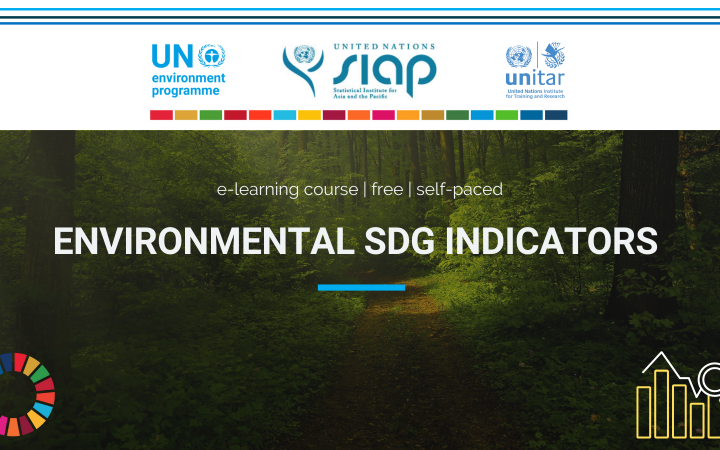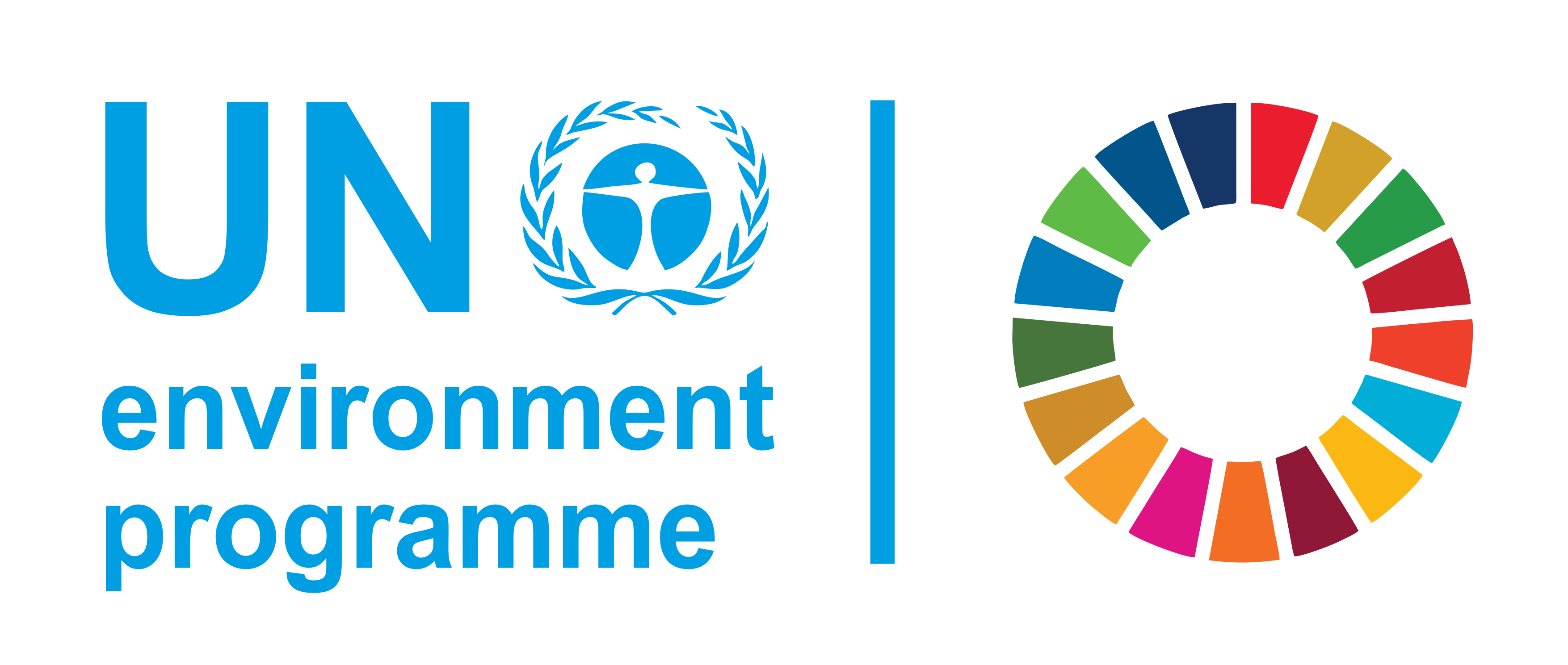
Enhancing Countries' Capacities for Measuring Progress on the transition towards a Circular Economy
What is the project about?
UNEP, with funding from the European Commission, is implementing a project to enhance countries' capacities for measuring progress on the transition towards a circular economy. The project initiated in January 2024, with a planned implementation period of three years.
This project aims to accelerate the transition towards a circular economy in the context of sustainable development by focusing on three areas: (i) development or enhancing methodologies at the global level, (ii) regional capacity building and dialogue between data users and producers, and (iii) enhancing national statistical capacities. The project also encourages internal capacity building within countries, emphasizing knowledge sharing to ensure sustainability. The ultimate goal is to inform evidence-based policies by regularly producing circular economy and waste datasets.
The deliverables of this project contain guidelines for measuring circular economy, regional workshops, national capacity building activities, and the development of methodology and guidelines for one selected waste stream, including pilot testing, dissemination and uptake.
A summary of the project and its activities can be found here.
Tools and training to build capacity of countries to measure, monitor and report on the SDG circular economy-related indicators
- Guidelines for measuring circular economy will be developed based on the adopted core set of indicators.
- Regional workshops are planned for Africa, Asia and the Pacific and Latin America and the Caribbean. They will focus on advancing the use of circular economy indicators in policymaking and supporting the participation among national SDG 12 indicators focal points to the Networks of government experts.
- National capacity building activities will take place in six project beneficiary countries (two in each region) to enhance the collection and dissemination of relevant SDG indicators.
National Training on Circular Economy Indicators
The main objectives of the trainings are to empower officials with knowledge and know-how to collect information and develop SDG indicators on sustainable consumption and production, waste, food waste and loss and water; strengthen inter-institutional coordination to invigorate production of SDG indicators and data flows through hosting data producers and users together; and share and discuss country challenges in measuring specific indicators. Activities in each project beneficiary country, including concept note and training report, are presented below:
- Jamaica National Training on Circular Economy Indicators, Kingston, Jamaica, 7-14 July 2025
- Thailand National Training on Circular Economy Indicators, Bangkok, Thailand, 20-30 May 2025
- Nepal National Training on Circular Economy Indicators, Kathmandu, Nepal, 13-19 May 2025
- Benin National Training on Circular Economy Indicators, Cotonou, Benin, 24 March - 04 April 2025
- Kenya National Training on Circular Economy Indicators, Nairobi, Kenya, 10-21 March 2025
- Colombia National Training on Circular Economy Indicators, Bogota, Colombia, 10-21 February 2025
Detailed presentations
Multiple presentations were prepared to assist countries by presenting detailed information on the background, rationale as well as calculations of indicators related to circular economy. 13 indicators were covered during national trainings, of which many are Sustainable Development Goals indicators. Presentations are available below in English, French and Spanish.
The guidelines are a tool to enhance institutional technical capacities to regularly produce circular economy datasets with the intent to inform and develop evidence-based policies. The indicators included in these guidelines are based on the core set of indicators of the Guidelines for Measuring Circular Economy, part A: Conceptual Framework, Indicators and Measurement Framework , published in 2023. The statistical framework is formed of 4 blocks, of which two are covered here: “Material life-cycle and value chain” and “Interactions with the environment”. There are 13 total indicators covered as part of these guidelines.
The guidelines are presented in a digital format and can be accessed here.
Calculation Tools
The guidelines are accompanied with calculation tools to facilitate the calculations of the headline indicators. These tools are available in English and can be accessed from the table below:
Circular Physical Material Flow Diagram
The Circular Physical Material Flow Diagram allows users to visualize, based on their imputed data, the material flow within a specific economy. Users can (i) upload their data and generate a downloadable diagram, or (ii) download the code, integrate in their statistical softwares, and edit as needed. No sign up is needed. The Diagram can be accessed here.
Environmental SDG Indicators Online Course
 As part of the previous capacity building project, UNEP created a self-paced e-learning course on the environmental SDG indicators in collaboration with UNSIAP and UNITAR. The course highlights the importance of monitoring the environmental dimension of sustainable development, its link to statistical frameworks, and the use of environment statistics in decision-making. The 25 SDG indicators under UNEP custodianship are covered in 10 modules. Module 3 'Measuring waste in the SDGs', Module 6 'Measuring material flows in the SDGs' and Module 7 'SCP interventions in the SDGs' are particularly relevant to build knowledge on ways to progress towards a circular economy. The course is available in English, Russian and French.
As part of the previous capacity building project, UNEP created a self-paced e-learning course on the environmental SDG indicators in collaboration with UNSIAP and UNITAR. The course highlights the importance of monitoring the environmental dimension of sustainable development, its link to statistical frameworks, and the use of environment statistics in decision-making. The 25 SDG indicators under UNEP custodianship are covered in 10 modules. Module 3 'Measuring waste in the SDGs', Module 6 'Measuring material flows in the SDGs' and Module 7 'SCP interventions in the SDGs' are particularly relevant to build knowledge on ways to progress towards a circular economy. The course is available in English, Russian and French.
Identification and methodology development for one selected waste stream
- Methodology and guidelines will be developed for one selected waste stream.
- Pilot testing of the methodology and guidelines will be conducted in at least 3 project countries.
- Dissemination and uptake of the methodology and guidelines will be achieved.
Pilot testing of the updated e-waste statistics: Workshop series on e-waste
The 2025 International Workshop Series on E-waste Statistics was implemented by UNEP in partnership with the United Nations Institute for Training and Research (UNITAR) Sustainable Cycles (SCYCLE) Programme. The objective is to support relevant authorities at the national level in developing the technical knowledge and capacities to regularly produce datasets on electronic waste (e-waste). Better data and statistics have a critical role to play in tackling the escalating challenges related to e-waste. This includes through helping to identify opportunities to turn waste into a resource, setting and monitoring progress against public sector targets, and evaluating best practices in policymaking. Activities in countries, including concept note and workshop report, are presented below:
- Thailand International Workshop Series on e-waste statistics, Online and in Bangkok, Thailand, 10 and 17 September, and 29-30 October 2025
- Jamaica International Workshop Series on e-waste statistics, Kingston, Jamaica, 29-31 July 2025
- Kenya International Workshop Series on e-waste statistics, Nairobi, Kenya, 22-24 April 2025







